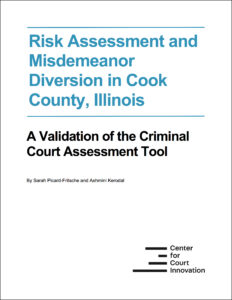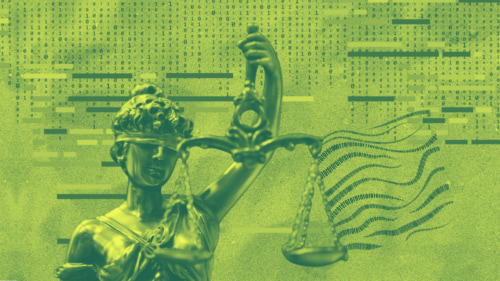-
Sarah Picard

Sarah Picard
-
Ashmini Kerodal
Risk-and-needs assessment tools play an increasingly important role in the criminal justice system, influencing decisions from pretrial release to the conditions of community-based supervision. In 2014, the Center developed the Criminal Court Assessment Tool, or C-CAT, to provide a brief, publicly accessible assessment option for high-volume jurisdictions.
This study seeks to validate the C-CAT on a sample of misdemeanor defendants participating in a deferred prosecution program in Cook County, Illinois. The tool was found to have good overall predictive accuracy as regards recidivism, though the risk categories needed to be adjusted, or re-normed, to better fit the lower-risk participants in the program. Participants were also found to have significant needs in the areas of substance use and employment, supporting the use of diversion to services and treatment in lieu of prosecution.




